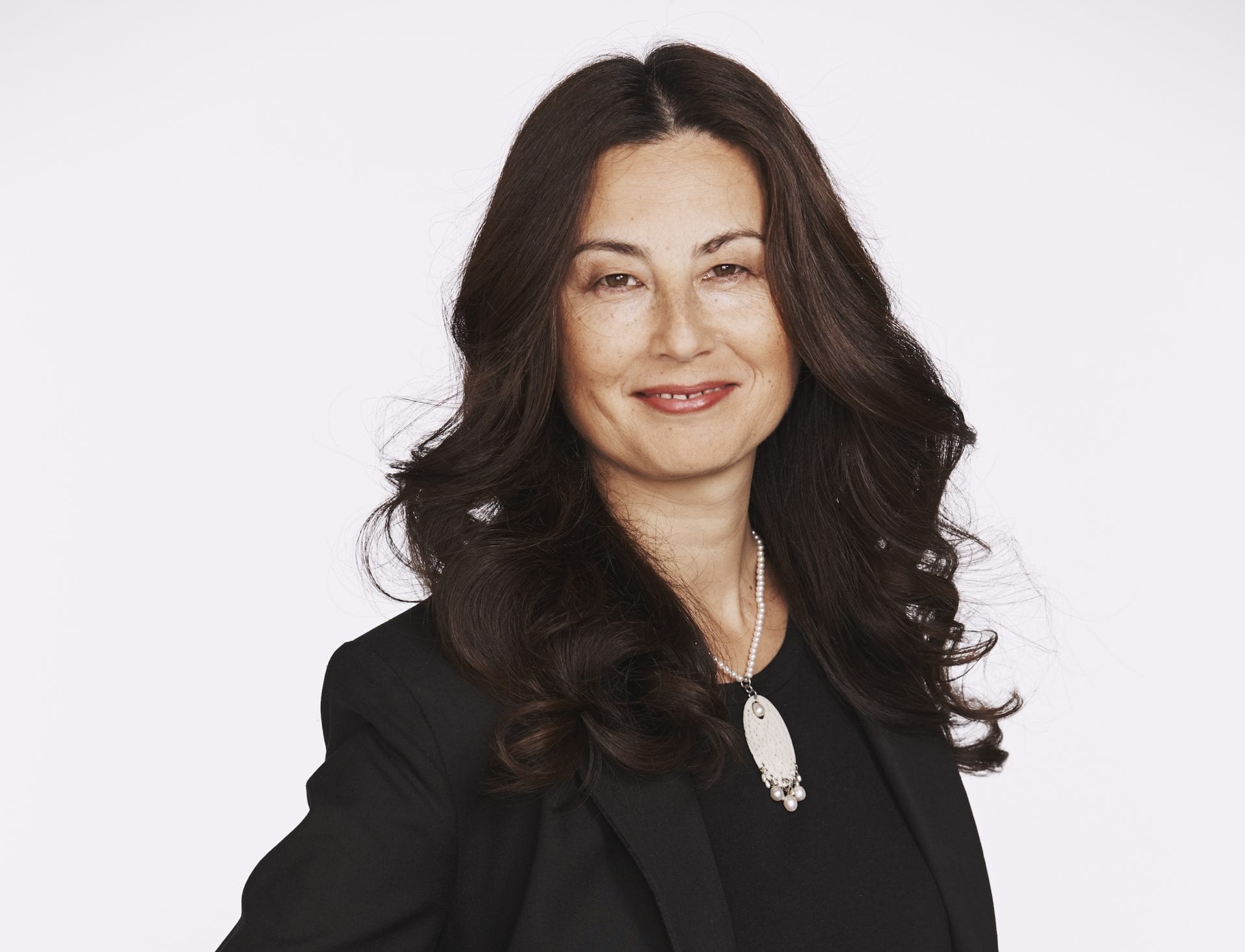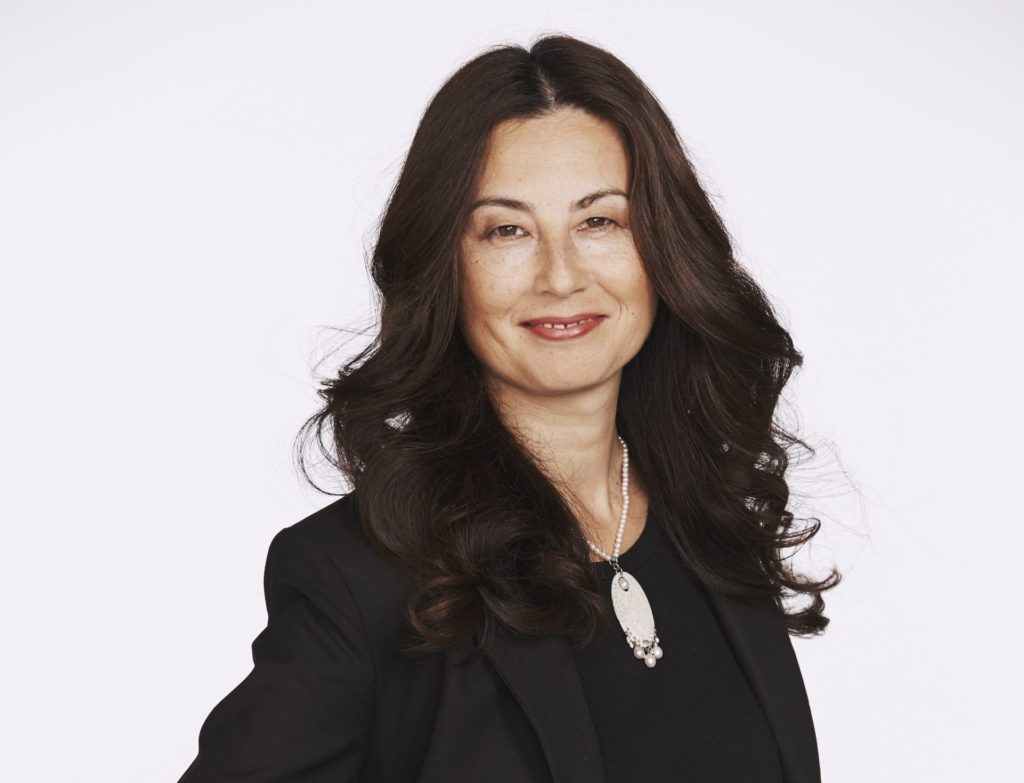
Marina Go has no fear. From accepting a senior media appointment at just 23, through to pursuing a board position at a testosterone-fuelled football club, Marina’s multi-faceted career is a lesson in stepping up.
Chairwoman, general manager, media executive, non-executive director and the mother of two sons, she’s a sought-after host, panelist and keynote speaker.
Also the founding publisher of Women’s Agenda, Marina’s now GM Hearst Bauer where she’s responsible for Harper’s Bazaar, ELLE and Cosmopolitan. In this edited extract from Women of Influence she speaks with Gillian Fox about how she thrived in magazines and later on boards – and how she got sidelined after having kids, but quickly got back on the field.
At just 23-years-old, you became the youngest magazine editor in the country. Running Dolly is a fantasy for many teenage girls, but what was the day-to-day reality?
When you’re thrust into a management position at a very young age with no previous experience it can be a bit daunting. It was a job that I really wanted. When you’re a 16-year-old and you think, ‘What do I want to be when I grow up?’ I wanted to be at Dolly magazine. So to have that opportunity at 23 was just beyond my wildest expectations.
But I was there day and night. They couldn’t get rid of me. I was there all weekend. I remember leaving the office at 11 o’clock at night, feeling sad I was leaving the office. I’d been there for hours by myself. I just loved it so much.
How do you propose today’s hungry young go-getters deal with much more senior and experienced colleagues?
Well, I learnt from my senior colleagues. I was the most junior editor in the building, and I was very fortunate. When I was a new editor, the caliber of editors in the building was quite extraordinary. I learnt from editors like Nene King, Lisa Wilkinson, Pat Ingram, David Dale and Trevor Kennedy. Richard Walsh was our publisher.
How important is it for women to identify individuals who are positive enablers early in their careers?
Women are criticised for not helping each other, but I was very lucky because I had a group of very senior women who wanted me to do well. Maybe that’s why I work like that with my female staff now, because I got that at an early age.
It sounds like a dream run, Marina – how and why did it end?
I left Dolly because I had my first child. I was pregnant, had a baby, and I made the very difficult decision not to go back to Dolly. When you’re the editor of Dolly, you have to enjoy hanging out, going to music festivals and that sort of thing. I just figured I couldn’t do that with a baby, realistically, and it would be unfair for the magazine if I were to hold onto that.
Were there career ramifications that you hadn’t anticipated?
In many ways, I put Dolly before myself which was quite naive. I thought, “I’ve done such a great job, I’m sure they’ll really give me anything I want when I come back.”
Of course that didn’t happen. They put me in a cupboard somewhere.
Unfortunately, that is a fairly common story among women returning from maternity leave. Many new mothers stay in that cupboard feeling humiliated. What did you do?
I left the organization. Pacific offered me an opportunity to be Editorial Director of their youth division. In many ways, I went to the direct competitor. Girlfriend was at a relatively embryonic stage and I worked with Girlfriend to really increase their circulation and prominence in the market.
Rejecting your relegation to the cupboard shaped the career you have today. Do you think radical change becomes essential at a certain point?
I was very fortunate. I was offered an opportunity to launch a new magazine, which I was very excited about. That was Australian Good Taste. A food magazine that would only sell through supermarkets was a brand new business model for Australia. I love innovation. I’d never worked in the food category before. I had never launched a magazine and I had never worked with a business model quite like that. Of course I was going to do it.
Great leadership is complex, but what qualities do you think emerging female leaders should cultivate if they want to be successful in today’s climate?
Great leaders have a very clear vision. If you know what you stand for, you know where the business is heading. Consistency is extremely important in leadership. If you stick to that then I don’t think you can go wrong.
I’m not talking about bloody- minded behaviour, we all mistakes. Understanding when a decision needs to be corrected is also part of leadership. But for most people today, with the uncertainty and the complexity, someone who sets the course is much more important than ever before.
What has your role as Chairperson of the Wests Tigers Board brought to your suite of skills?
A lot of people say to me, “How on earth did you end up at Wests Tigers?” But I have a bit of a history with sports governance. I spent six years on the Board of Netball Australia. I really enjoyed that experience; it was a fantastic, collegiate board. It’s one of the best-governed sports in the country.
When I came off the board after my three terms, I was approached about joining another sports board. I had said very clearly to the recruiter, who didn’t tell me the sport, that I was keen on joining another board, but only if it was a male sports board that needed diversity. I couldn’t have hoped for better. I was appointed Chair at the first Board meeting, much to my surprise. I hadn’t expected that, but I take it very seriously.
How did you approach the role in an environment that’s traditionally been so blokey?
My job at Wests Tigers is a really important position in terms of the Club, but also in terms of my career. It’s the first time I’ve chaired a board,
so I did the chairman’s course at the Australian Institute of Company Directors (AICD). I also spoke to a number of great chairmen in the sport. I started with Nick Pappas, who is the Chair of South Sydney. He won the premiership last year. For me, he is the benchmark of chairmen in the NRL. He’s amazing. He’s offered me great counsel.
What can other women learn from the strategies you employed to build confidence in that male-dominated arena?
When I became Chair, I did what women do: we make sure that we tick every box and that we feel very, very confident in our ability to do the role. Whereas the guys just get on with it.
I know a lot of male chairmen, and none of them went off and did the chairman’s course or spoke to other chairmen. But it is what women do because I’m determined to do a good job. I take it very seriously. I owe that to the Club and the members: to take it seriously and be the best Chair that I can be for them.
It’s different, but it’s not unlike what I do with Bauer. Our product is our rugby league team. I’ve spent my career dealing with products. I used to be the Editor in Chief of magazines, which is like the captain of the football team. That’s the equation. I’m used to dealing with the equivalent of a football team, day in, day out.
What advice do you have on attitude for women who are just starting down their leadership path?
‘Fearless’ is a really important word. Somebody asked me recently for a word to describe myself and I said fearless. It also describes how you need to feel in order to call someone up and introduce yourself. Our little fears get into our head as women and we think, “But what if they think this? What if I’m not good enough?” You have to park that, be fearless and front up.
What’s going to happen if they brush you off or they say no? You may never see them again. Who cares? Your life goes on. You go onto the next person. Taking rejection is difficult, I understand that; for a lot of people it can be crippling. If there’s anything that women need to work on, it’s being fearless. The difference between a really fantastic executive and making the move up to leadership is being fearless.
You’ve held senior roles while your boys have been growing up. How did you navigate a successful career while raising a young family?
The most important thing that I have done is prioritise my children. I’ve never steered away from the fact that I have them. I’d urge women who are mothers to never, ever try and pretend that they’re not mothers in the workplace. It just doesn’t work and no one is happy. If you work in an environment where you have to do that, then it’s clearly not the right place for you. You don’t want to make things worse for yourself than they need to be.
Women’s Agenda readers can download an exclusive preview of Woman of Influence ahead of the official launch of the book on May 17, 2016. To download your exclusive preview, simply visit here.
Check out more from this series: Tracey Fellows on why leadership is like love.


